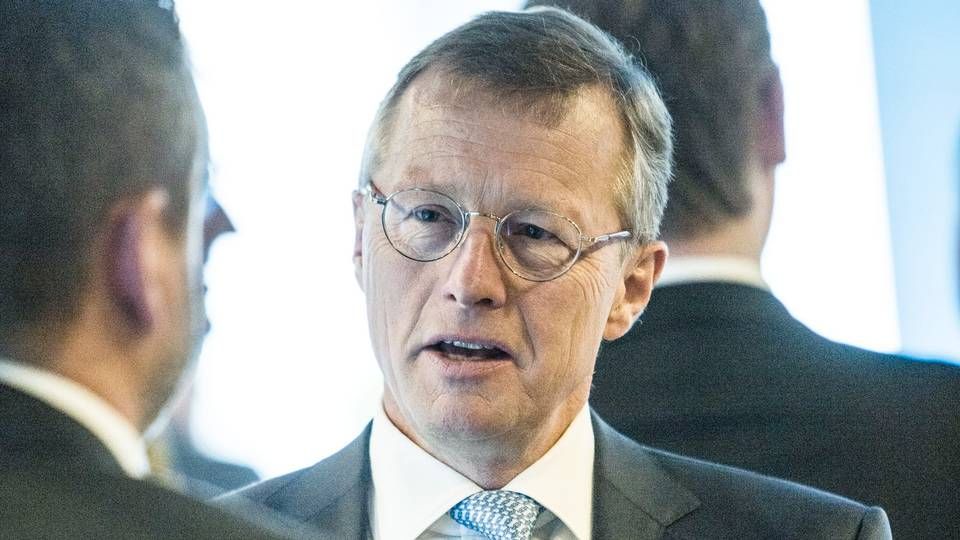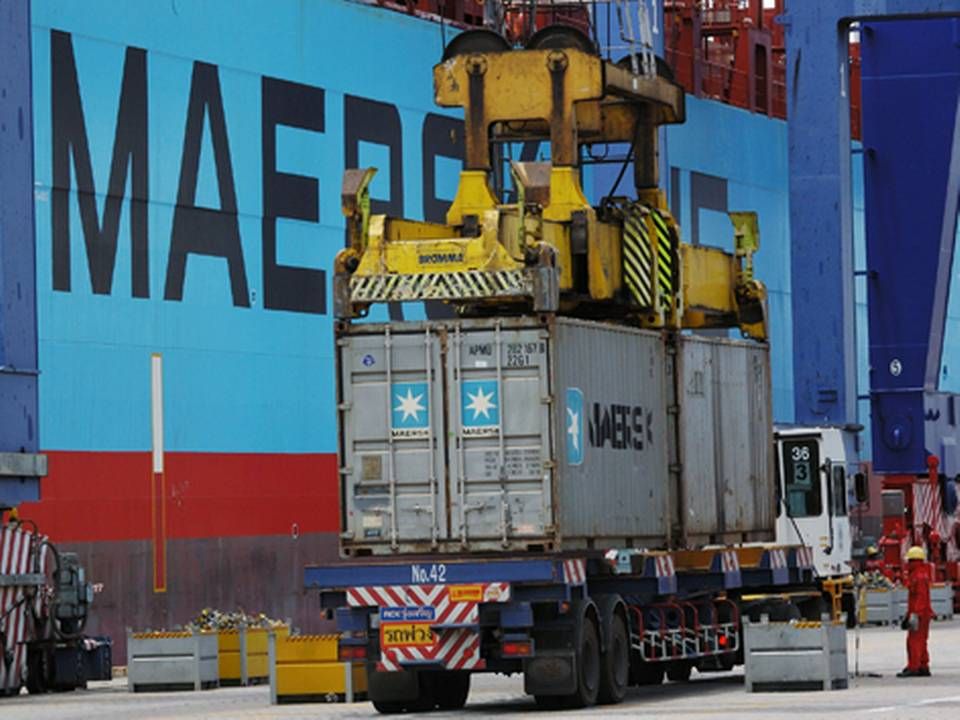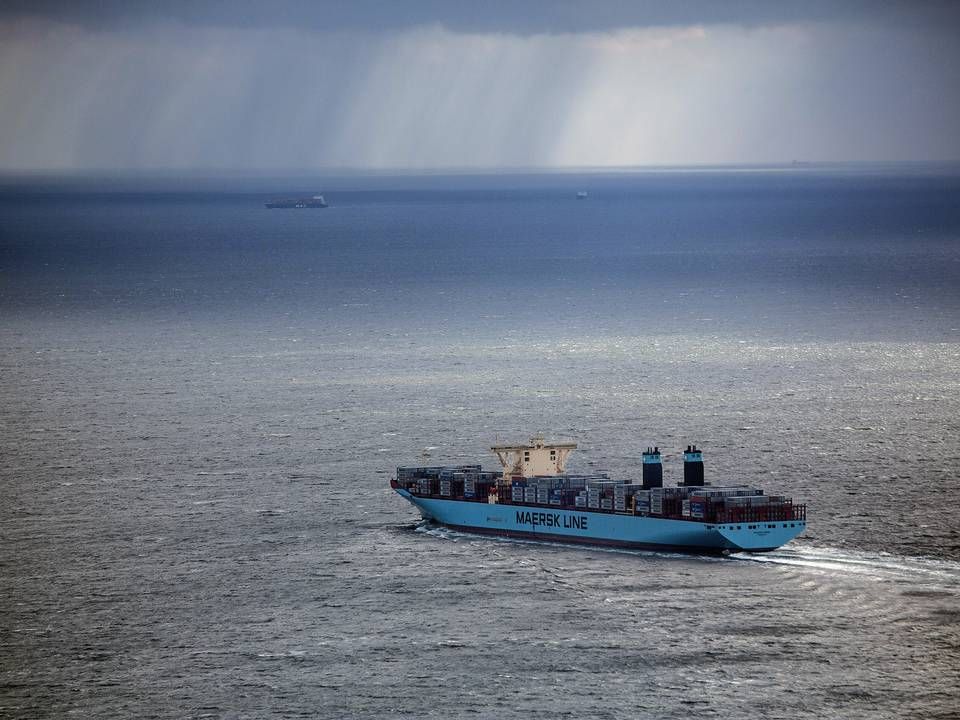Nils Smedegaard: Market on par with crisis year 2009

Maersk is not currently sailing in golden waters, explained CEO Nils Smedegaard Andersen when he took the stage after the pompous notes of Beethoven's 9th symphony played out across the shipping giant’s fourth Capital Markets Day, held at the Tivoli Hotel by Copenhagen's waterfront.
Analysts and investors from all over the world have flown in for the event, which has as its first and foremost purpose to convince the outside world that it is worth investing in Maersk's shares, and that the share price should be even higher. So far, 2015 has been an uphill battle for Maersk Group, whose shares lag far behind other shipping and transport shares on the Copenhagen Stock Exchange.
Try a free 40-day trial subscription to ShippingWatch
This is in spite of the fact that Maersk has delivered surprisingly good results in the first two quarters of 2015. However Nils Smedegaard, like the financial markets, recognizes that the group's core business areas find themselves deep within an extraordinarily difficult market, one so difficult that comparisons can be drawn to the crisis year 2009.
Concerns and possibilities
"This is a situation that worries us. The oil price is low and very close to the lowest point of 2009. We're not all the way there yet, but almost. And we're also facing the historically low rates in the container industry. We find ourselves very close to the market situation five years ago, but today the conglomerate is in a completely different position," said Nils Smedegaard Andersen.
Maersk Line sees considerable gains from 2M
With the title of this year's Capital Market's Day “Building Value through the Cycle,” the event this year is an opportunity for the group to convince the attending financiers and analysts that Maersk is financially strong, stripped down to the bare bones of its core business and that the company can make cheap acquisitions in a market under pressure. Or as Nils Smedegaard Andersen said:
"We are in a tough market, but we hope that when you leave today, you will leave convinced of our potential."
The last three times Maersk held a Capital Markets Day, it did not immediately succeed in talking up the share price, even though the majority of analysts covering Maersk shares acknowledge the openness displayed by the group.
11 billion for acquisitions
USD 11 billion was the first argument pulled forth in the conference hall by Nils Smedegaard Andersen, citing the sum amassed by Maersk Group over the last few years through the sale of assets which were either not wanted in the portfolio or sold because they failed to deliver the desired results. Dansk Supermarked and Danske Bank are the largest and best known assets sold off over the last few years.
Maersk Group has announced that it has reached the end of this divestment process of the last few years, which dealt with exclusively focusing the group's business on the current five core business units. As such, the acquisition of Spanish-based Grup Maritim TCB yesterday is only the latest in a range of investments in the core business areas, which the group has launched and which ultimately aim to convince the outside world that Maersk both has a plan and can find interesting acquisition targets at a good price.
Try a free 40-day trial subscription to ShippingWatch
"We are a much stronger group than five years ago, and we can use the downturn to positive effect," said Nils Smedegaard Andersen, describing the current period the conglomerate finds itself in as a 'new phase,' but one in which most of the companies - in addition to Damco - are located in the top quartile of the market in terms of yield.
A new phase
Part of the 'new phase' is that Maersk, to the annoyance of many stock analysts, has dropped the very specific financial targets in the individual segments. Maersk Oil no longer aims for 400,000 barrels of oil per day, just as both APM Terminals and the fifth core unit, APM Shipping Services, will no longer have to deliver a profit of USD 1 billion or USD 500 million in 2016.
The Maersk Group maintains 2015 guidance
Maersk Group and its core units are of a significantly different size compared to seven years ago when Nils Smedegaard took over as CEO of the conglomerate after Jess Søderberg. For example, Maersk Line, which is the group's biggest core business and represents 40 percent of the turnover of Maersk Group, has grown from transporting 6.2 million containers (measured by the large 40 foot containers), to 9.4 million containers in 2014. The carrier's global market share stands at about 16 percent, and the company will defend this market share, through expansion, if necessary, said Smedegaard.
"We are in a position to acquire solid businesses, not within other areas but within our core business areas, where we can see interesting possibilities and are in a good position to spend money," he explained.
He stressed that it is essential that the group is competitive and can deliver the service demanded by customers. As such, efficiency gains are a major reason that the results delivered by the Group, particularly Maersk Line, have been a positive surprise to many analysts.
Maersk Group expects a full-year profit for 2015 of around USD 4 billion, or in line with last year.
Related articles
Maersk Line shuts down a West Asia - Europe service
For subscribers
Three Capital Markets Days have hurt the Maersk share
For subscribers




















